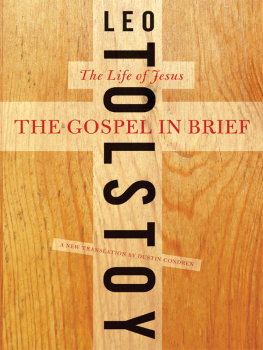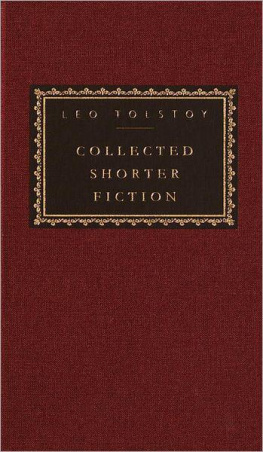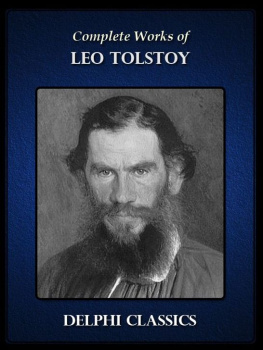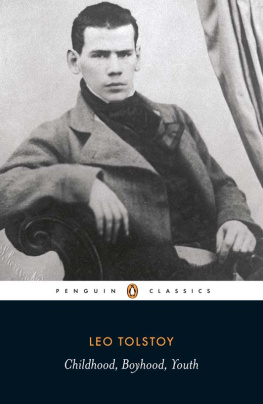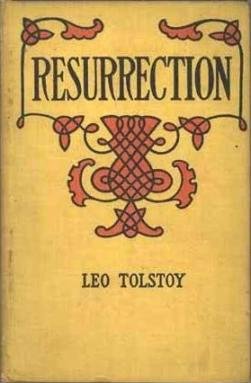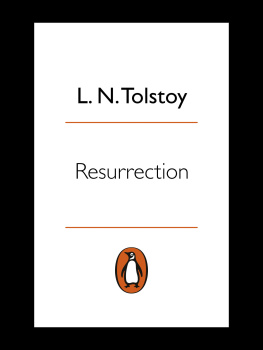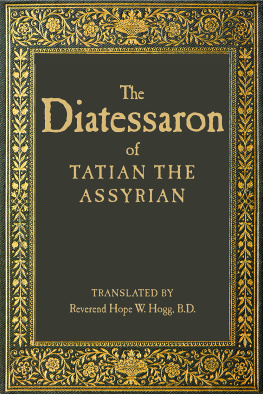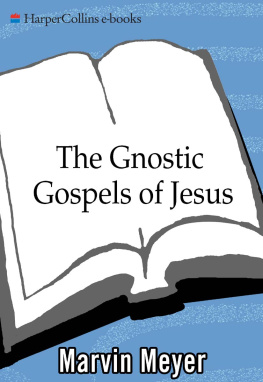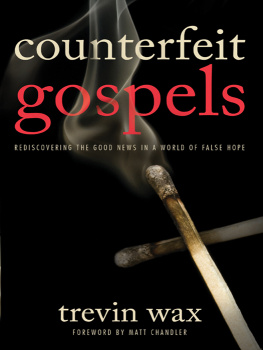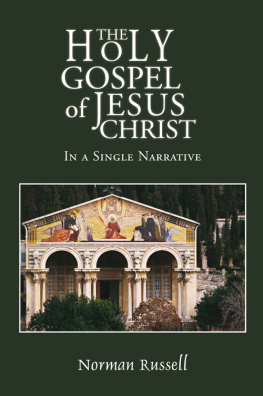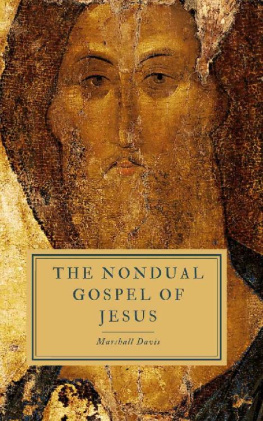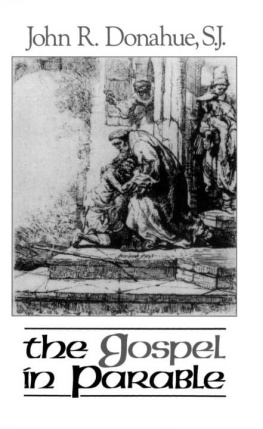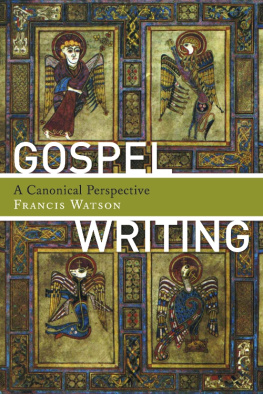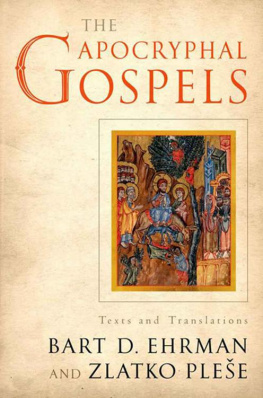Toward the end of an exceptionally fruitful period of fiction writing in the 1860s and 1870s, in which he produced such enduring classics as War and Peace and Anna Karenina , Leo Tolstoy was shaken by a personal and spiritual crisis that effectively halted his labors as a novelist. He had fallen into despair, become preoccupied with death and found himself on the verge of suicide, navigating existence with nothing more than the nihilistic belief that he was an accidental clutter of parts, that there was no purpose in life and that life itself is evil. In this deep existential anguish, Tolstoy recalled the Christianity he had seen in his youth and located some hope in the memory of the simple believers among whom he had grown up. He saw in these believers an example of a real, fulfilled life, and it was this recollection that encouraged him to begin a deep study of the Christian teaching as found in the Gospel. This spiritual crisis and its consequences are documented in detail in Tolstoys subsequent nonfiction work, serving as the impetus for his texts on personal spirituality, such as A Confession , What I Believe and The Kingdom of God Is Within You.
Tolstoys study of the Bible, which he began in 1879 purely for personal enlightenment, had developed by the following year into a massive project in which he intended to retranslate the four books of the Gospel and synthesize them into one narrative. This labor, which lasted for close to three years, was transformative. He would later refer to it as a time of intense concentration and constant, rapturous exertion of my soul. He felt that he had come to know the light and, in the words of his wife, Sofia Andreyevna, this study had made the normally stentorian Tolstoy calm, concentrated and quiet.
A large portion of his study was devoted to referencing early Greek texts with the help of books by the biblical scholars Johan Griesbach, Constantin von Tischendorff, douard Reuss and Vasilii Grechulevich, as well as checking the Latin Vulgate and certain German, French, and English translations of the Gospels. Tolstoy also frequently made use of his philologist friend and tutor to the Tolstoy children, I. M. Ivakin, who was readily available on the estate at Yasnaya Polyana. He set upon the texts vigorously, dismissing any reservations about the spiritual sanctity of the words themselves, or his theological qualification for such work, asserting with some humor that the most remarkable aspect of this translation process was that an artillery lieutenant had decided to translate a Greek book for himself.
The purpose of Tolstoys investigation into the Christian Gospel was to find the practical, pure teaching of Jesus Christ, to free it from the linguistic patina of ritual and scripture, removing both the dogmatic and the supernatural. In illustration of this approach, Ivakin recalls an 1881 conversation in which Tolstoy said to him: What is it to me if [Christ] was resurrected? If he was resurrected, then God bless him! The questions important to me are: What should I do? How should I live?
The project, and indeed the direction of his own spiritual development, seems to have crystallized with the triumph he felt in translating the first ten verses of the Gospel of John, where he renders the familiar In the beginning was the Word as As the basis and source of all things stood the knowledge of life. He felt that his usage of knowledge of life for the Word could be justified philologically, and this gambit seems to typify Tolstoys approach to the text as a whole: He stretches the words themselves, ridding them of their encrusted ecclesiastical connotation, in order to reveal a text that corresponds to the deeper spiritual truth that he felt he had discovered in the course of his study.
Such stretching of the Bible verses is especially apparent in the accounts of Jesuss miracles. For Tolstoy, the miraculous multiplication of fishes and loaves becomes a lesson in communal sharing as his followers each learn to give away their food to others, the story of the healed blind man now operates as a slight metaphor in which restored sight is read as a type of spiritual enlightenment, and Jesuss early temptation in the wilderness plays as a sort of Socratic dialogue with himself.
This labor to infuse the text with greater flexibility comes out more successfullyor more believablyin certain sections than it does in others. Ivakin felt that in many places Tolstoy had stretched things too far in order to support his previously held views, as did Tolstoys great confidant and reader Nikolai Strakhov, who, though he supported the work as a whole, saw in his friends translation many weak spots and exaggerations and took particular exception to his treatment of the first ten verses of the Gospel of John. Readers may also question the consistency of Tolstoys translation at certain points. For example, he includes the episode of Jesuss conversation with the Samaritan woman at the well in chapter two and then repeats it without explanation in chapter five, using markedly different wording and emphasizing somewhat different aspects of the story.
Indeed, before long, Tolstoy began to feel the weakness of his philological justifications and admitted that in some places he had stretched meanings further than the original text could sustain. There are many such places wherethe sense is stretched and the translation is contrived. This happened because I wanted, as much as possible, to depolarize, as does a magnet, these words which had been given an entirely nonnative polarity as they have undergone interpretation by the church. To correct that alone would be a beneficial endeavor. And yet, despite admitting that he had overtaxed the Gospel words, it is clear that Tolstoy felt that his zeal was justified by his goal. His critical feeling toward the weakness of his philological arguments did not make him any less confident in the rightness of his understanding of the essential Christian teaching, a conviction that would carry him through the three years of his work on the Gospel.
By March 1881 he had produced a draft, in manuscript, of his translation, though he still felt that it was far from being ready to be published. It was titled A Synthesis and Translation of the Four Gospels . This work consisted of four distinct parts: an account of his personal spiritual life, his recent attraction to the Christian teaching, and how he came to understand it in his own terms; a discourse on and refutation of the Christian teaching as it had been falsely presented by the church; an investigation into the original teachings of Jesus, as found in the Gospel, and its synthesis into one narrative; and an interpretation of this text, an illumination of its true meaning, and a suggestion of the consequences that follow its teaching.
While the manuscript was in this form, V. I. Alekseyev, who had been staying on the estate as teacher to Tolstoys eldest son, asked permission to make a copy of Tolstoys text before his departure. Tolstoy consented, but as Alekseyev began his copying he realized that he would only have time for a portion of the work, and decided to copy out the third section where the actual synthesis and translation was located, omitting the other sections as well as all of the philological evidences that Tolstoy had labored over to justify his decisions as translator. Tolstoy examined this copy and approved it, realizing how much he liked the compactness of this shorter account. Shortly afterward, he edited this version of the work, wrote a long preface for it, and titled it A Brief Account of the Gospel. In a November 1881 letter to Strakhov he says that it would make a good small book and that he would like to see it published in the fall, but that it must be published abroad. Tolstoy felt some satisfaction with this condensed text and simultaneously felt so overwhelmed with the unwieldiness and seemingly infinite revisions required for the larger work that, apart from some minor adjusting here and there, he never returned in earnest to finish the project.

